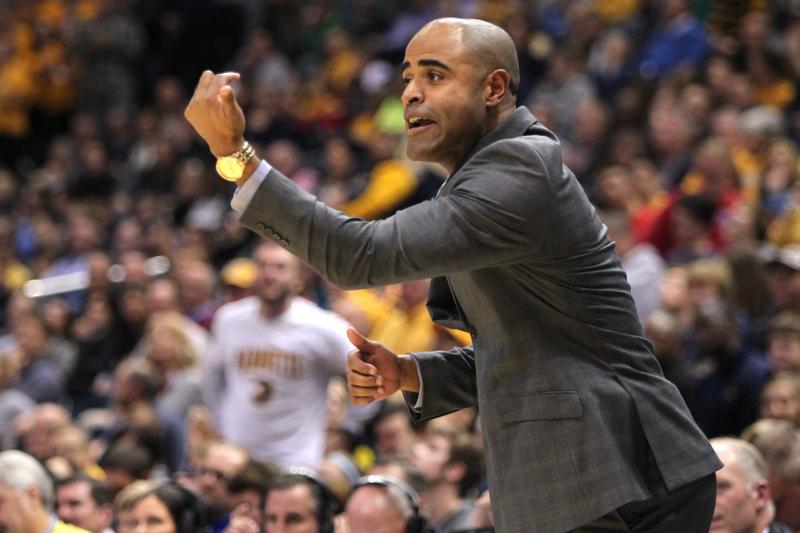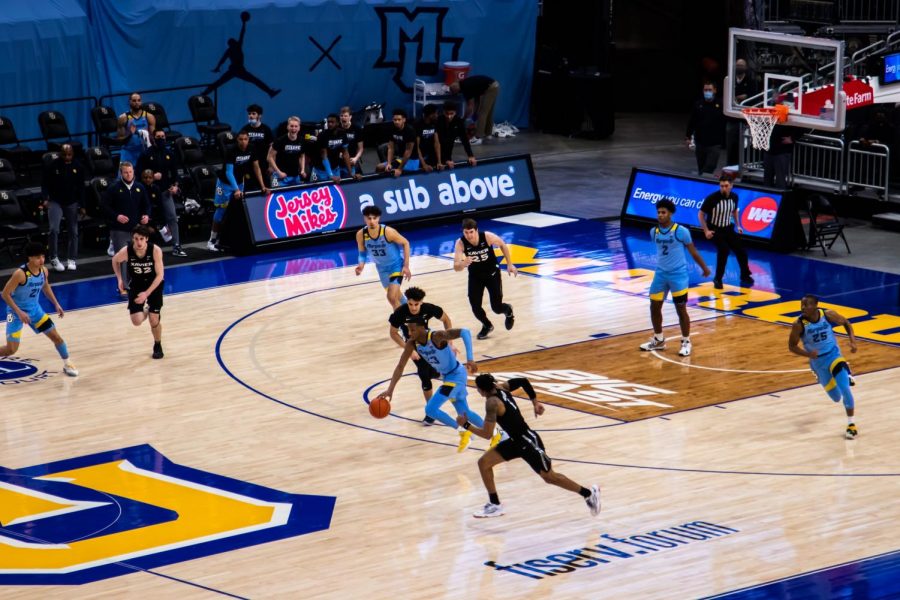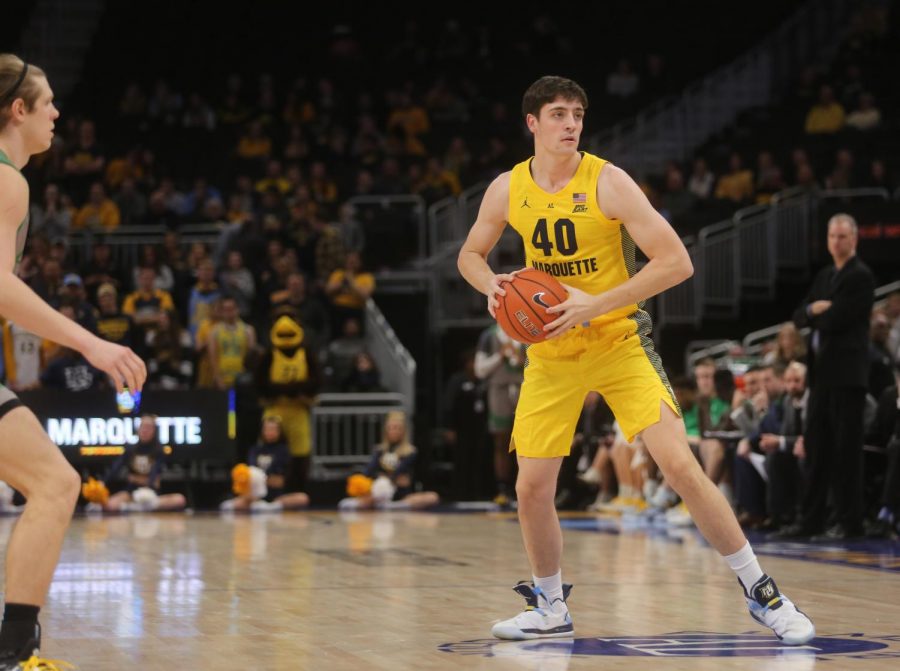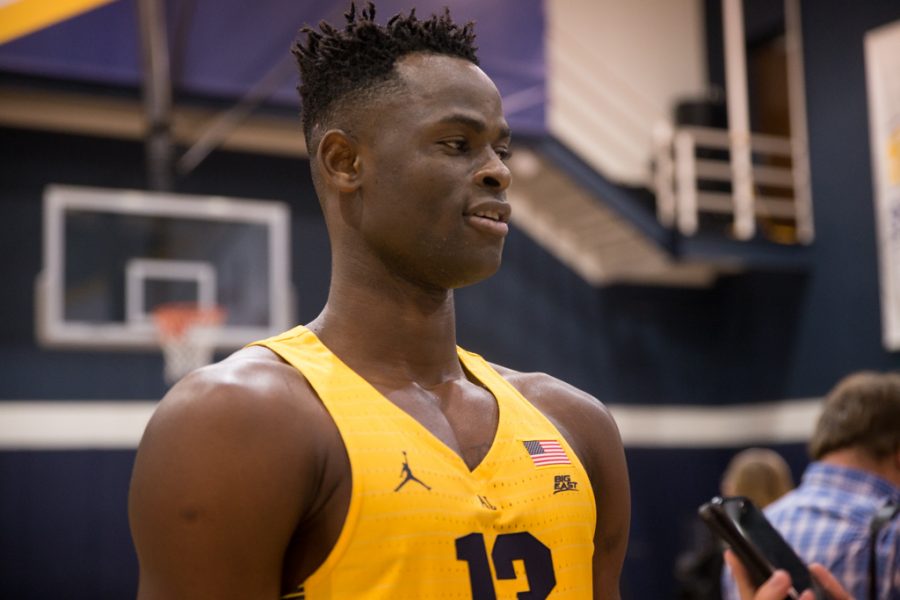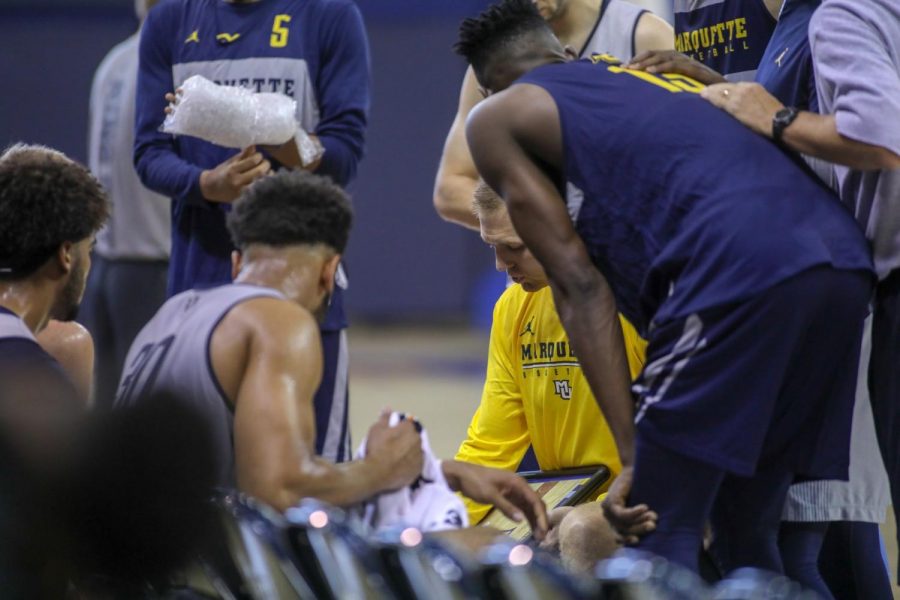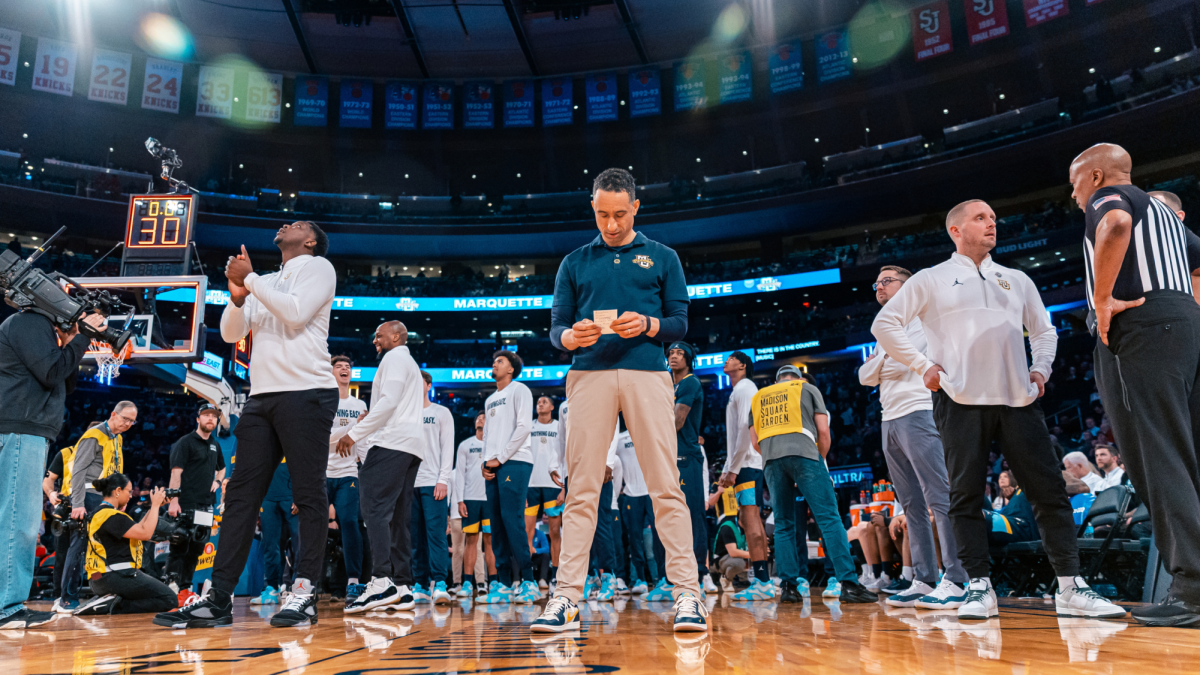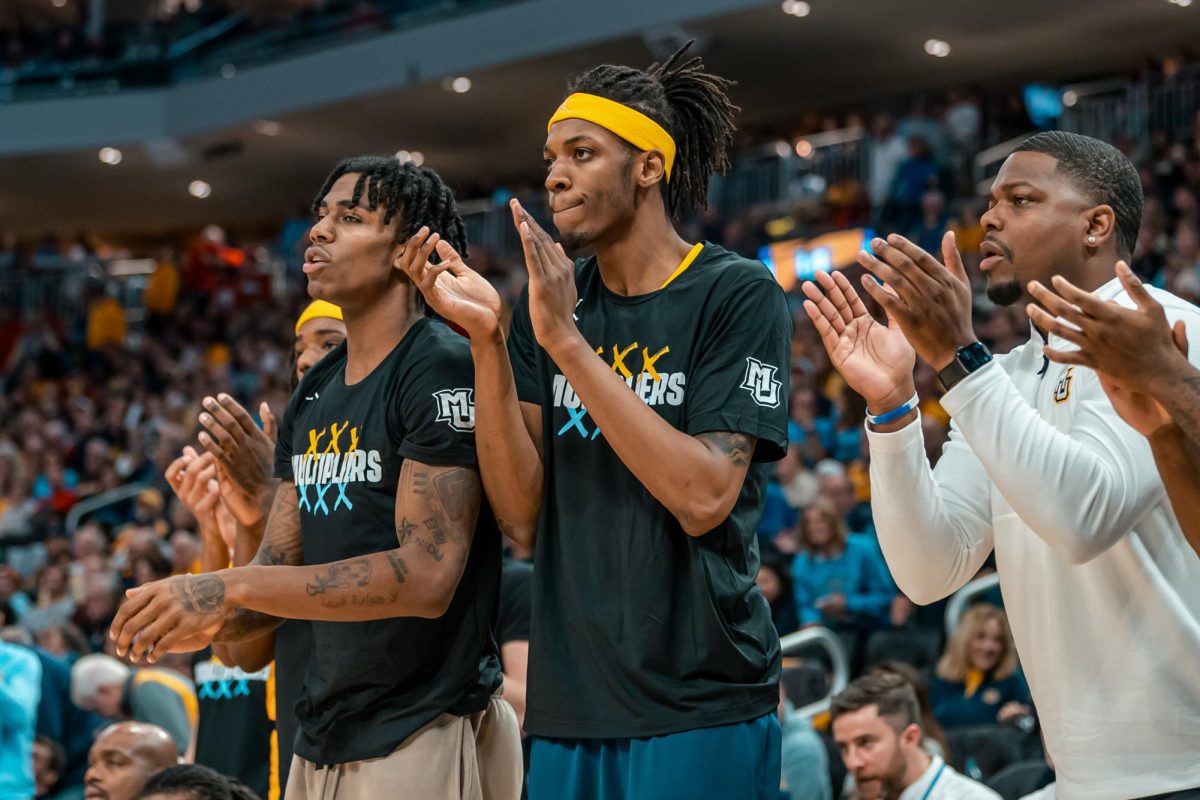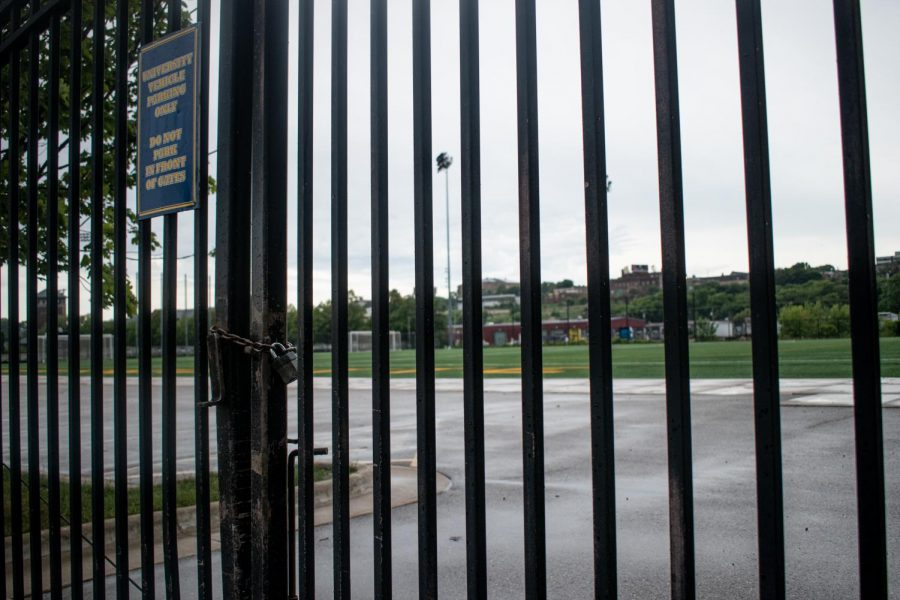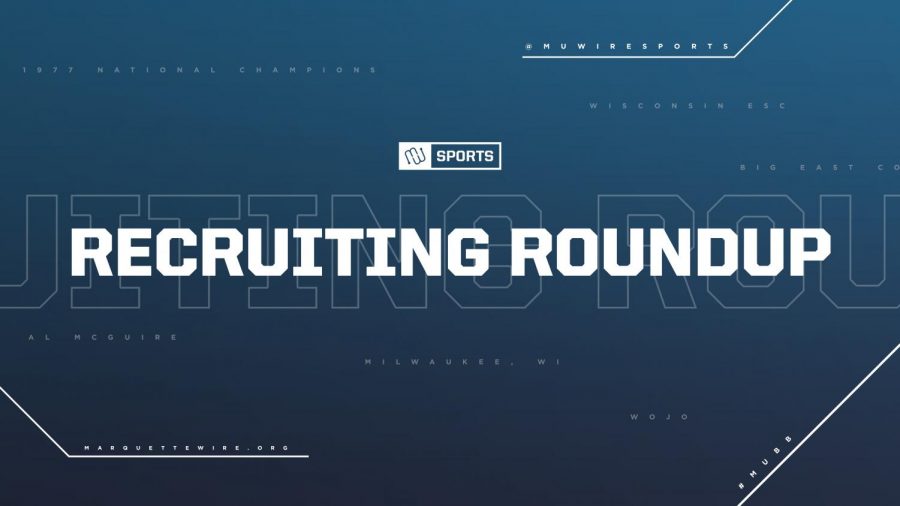The NCAA enacted new recruiting rules two months ago allowing coaches to retweet and like recruits’ tweets, even if they have not signed their National Letter of Intent.
The passage of Rule 2015-48 marks a major shift from the NCAA’s previous, more restrictive rule, in which coaches could only follow and send private messages to recruits. Like the other 350 Division I basketball programs, Marquette’s coaching staff faced a challenging decision — how will their recruiting philosophy adapt to this game-changing rule?
“We don’t overcomplicate it,” Marquette assistant coach Stan Johnson said. “If there’s something out there that a guy that we’re recruiting posts and we think it’s something we like or we want to retweet, we will do that.”
“There has to be a balance,” Johnson added. “A guy knows that you like him and you’re working to get him, but you don’t come off overly aggressive and don’t give them their space. … If a kid likes space or we don’t feel like its a kid that wants to be bothered or wants us all in his business, we wouldn’t do that as much.”
Unlike many counterparts in Division I football that spent the first few hours of Aug. 1 retweeting hundreds of tweets, Johnson explained, “We are not actively seeking out everybody that we’re recruiting and liking and retweeting everything we do. … We still have a program to run and our first job is to always be mindful of our program, our standards and our culture.”
Coaches justify the approach of actively looking for tweets to retweet by saying it could be the difference in proving to a recruit they really matter. However, Johnson is not concerned about losing a recruit because of a shortage of retweets or likes.
“If a guy wants you to retweet or like everything he’s doing, that’s almost impossible, and we’re not going to do that,” Johnson said. “Maybe we don’t get that kid.”
Among all tweets from a recruit or their immediate family since Aug. 1, Wojciechowski and his assistants have combined to like 34 tweets and retweet four. That is equivalent to one like or retweet every 36 hours.
“I haven’t heard one recruit tell us, ‘Coach, you’re not liking my stuff,’” Johnson said. “I’m interested in seeing how that goes over the course of the next year, but there hasn’t really been any impact one way or another for us.”
Class of 2017 commit Ike Eke announced his commitment in June prior to the new rule, but has been a relatively frequent recipient of likes from Wojo and his staff since August.
“Any of my followers who aren’t aware of the Marquette program or the coaching staff at MU are probably checking out Marquette because of those likes and retweets,” Eke said. “It helps spread the word about MU.”
The 6-foot-9 power forward indicated that a coach liking or retweeting his tweets would have impacted his recruitment, saying, “It would get my name out there, and I like getting more followers.”
This rule allows coaches to also like or share recruits’ posts on other social media sites such as Facebook or Instagram. Johnson said that he has an Instagram but does not use it for recruiting.
Going forward, Johnson does not have any concerns about the rule.
“(Social media) is how kids connect and it’s how they communicate, so our ability to (retweet and like tweets) has more positives than negatives,” Johnson said.

